                            
                            
  
Die versunkene Stadt
The sunken City
                            
Liegt im Land am Nil die Keimzelle für den ewigen Streit um Atlantis? Könnte Atlantis nicht auch der Garten Eden, das biblische Paradies, gewesen sein, oder das gefundene Troja, das Bermuda Dreieck oder Helgoland? Vielleicht auch das nordische Asgard? Sogar Irland, Indien, die Antarktis und das mexikanische Yukatan kommen in Frage. Atlantis ist und bleibt eben ein Mythos, ein Rätsel.
|
 Is in the country on the Nile the germ cell for the eternal dispute about Atlantis? Not the garden of Eden biblical paradise, Atlantis could be, or the found Troy, the Bermuda triangle or Helgoland? Perhaps the Nordic Asgard? Even Ireland, India, Antarctica and the Mexican Yucatán coming into question. Atlantis is and remains just a myth, a mystery. Is in the country on the Nile the germ cell for the eternal dispute about Atlantis? Not the garden of Eden biblical paradise, Atlantis could be, or the found Troy, the Bermuda triangle or Helgoland? Perhaps the Nordic Asgard? Even Ireland, India, Antarctica and the Mexican Yucatán coming into question. Atlantis is and remains just a myth, a mystery.
|
                             Die Geschichte vom versunkenen Märchenstaat beginnt in Ägypten.
Die Geschichte vom versunkenen Märchenstaat beginnt in Ägypten.
 The story of the sunken State of fairy tale begins in Egypt. The story of the sunken State of fairy tale begins in Egypt.
                            
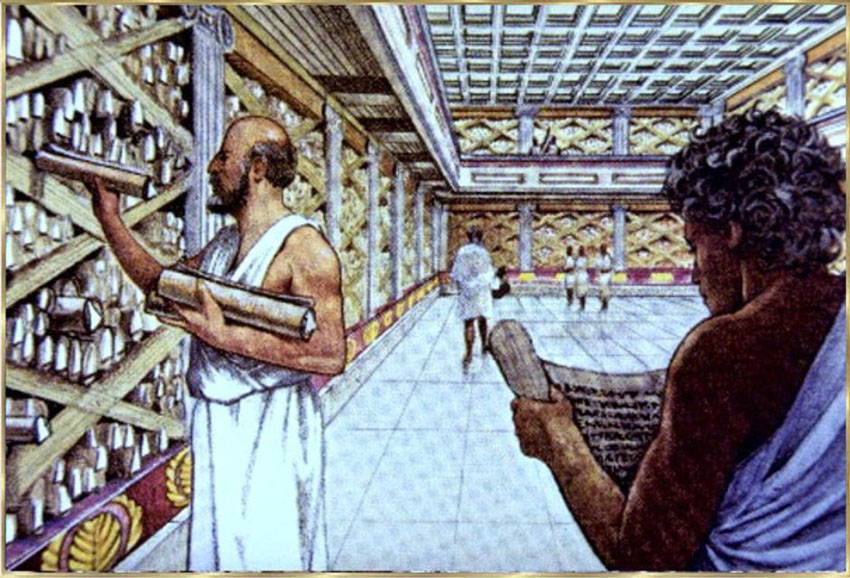
                             Ein angeblich verschollener Bericht beschrieb das sagenhafte Atlantis
Ein angeblich verschollener Bericht beschrieb das sagenhafte Atlantis
 A supposedly lost report described the legendary Atlantis A supposedly lost report described the legendary Atlantis
                            
Die Geschichte vom versunkenen Märchenstaat beginnt in Ägypten. In der alten Pharaonenstadt Sais hüten Priester den Atlantis-Bericht im Tempel der Neith. Dort kopiert ihn der griechische Staatsmann Solon um 560 vor Christus. Hat er bei der Übersetzung in seine Muttersprache entscheidende Fehler gemacht? Liegt im Land am Nil die Keimzelle für den ewigen Streit um Atlantis? Die Säule mit dem Originaltext ist längst zerstört - die Abschrift gilt als verschollen. 100 Jahre nach Solons Besuch in Sais gelangt sein Dokument in die Hände des griechischen Philosophen Platon. Er nimmt die Geschichte auf in sein Werk über das Wissen der Welt.
Als Solon in Ägypten war, wollte er von den dortigen Priestern etwas über die älteste Geschichte der Menschen in Erfahrung bringen. Um vor den Priestern zu glänzen, nannte Solon die, wie er glaubte, ältesten Geschichten der Griechen, so etwa die Sintflutgeschichte, bei der Deukalion und Pyrrha überlebten. Einer der Priester hatte aber nur Gelächter für Solons "Weisheit" übrig. Er sprach: "O Solon, o Solon, ihr Griechen seid doch alle Kinder. Ihr wisst über die Geschichte nur in Form von Sagen und Fabeln. Und über die wirklich alten Begebenheiten wisst ihr nichts. Um Solon noch weiter zu beeindrucken, erzählte er ihm die älteste Geschichte, die ihm von Solons Vorfahren, also den ältestenAthenern bekannt war.
Sie hätten einst ein hervorragendes Gesellschaftssystem besessen und eine wahrhaft hervorragende Heldentat vollbracht. Solon war gespannt und wollte nun die ganze Geschichte hören, die der Priester wusste. Nur zu gern erzählte ihm dieser die Geschichte. Athen sei vor 9000 Jahren gegründet worden (also 9000 Jahre vor Solons Besuch in Ägypten, der zehn Jahre lang dauerte, vermutlich von 570 bis 560 v. Chr.). Schon bald nach der Gründung hätte ein Riesenreich, Atlantis, die Länder des gesamten östlichen Mittelmeerraumes in einen Krieg verwickelt. Sämtliche Länder seien von Atlantis unterworfen worden, einzig Athen habe dem Besatzer genügend Widerstand entgegengesetzt.
|
 History of the sunk fairy tale state begins in Egypt. In the old Pharao city Sais priests guard the Atlantis - report in the temple of the Neith. There the Greek statesman Solon copies it around 560 before Christ. Did it make crucial errors in the case of the translation into its native language? Is the germ cell for the eternal controversy over Atlantis located in the country at the Nile? The column with the original text is long destroyed - the copy is considered as missed. 100 years arrived after Solons attendance in Sais its document into the hands of the Greek philosopher Platon. It takes history on into its work over the knowledge of the world. History of the sunk fairy tale state begins in Egypt. In the old Pharao city Sais priests guard the Atlantis - report in the temple of the Neith. There the Greek statesman Solon copies it around 560 before Christ. Did it make crucial errors in the case of the translation into its native language? Is the germ cell for the eternal controversy over Atlantis located in the country at the Nile? The column with the original text is long destroyed - the copy is considered as missed. 100 years arrived after Solons attendance in Sais its document into the hands of the Greek philosopher Platon. It takes history on into its work over the knowledge of the world.
When Solon in Egypt was, he wanted to bring the oldest history of the people of experience by the local priests. To shine before the priests, Solon named, as he believed, oldest stories of the Greeks, so about the flood story in the Deucalion and Pyrrha survived. One of the priests had left but only laughter for Solon 'Wisdom'. He said: ' O Solon, o Solon, you are Greeks but all children. You know about the history in the form of myths and Fables. And you know nothing about really old events. To further impress Solon, he told him the oldest story, which was known to him by Solon ancestors, so the oldest Athenians.
They had once possessed an excellent system of society and made a truly outstanding feat. Solon was curious and wanted to hear now the whole story, the priest knew. Only too happy to this told him the story. Athens was founded (i.e. 9000 years before Solon visit to Egypt which was for ten years, probably by 570-560 BC) 9000 years ago. Soon after the establishment of a huge Empire, Atlantis, the entire eastern Mediterranean countries had involved in a war. All countries had been subjected to by Atlantis, only Athens have opposed enough resistance to the occupying forces.
|
                            
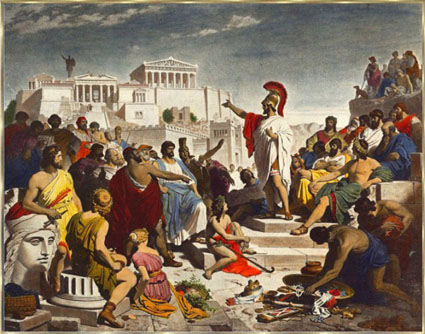 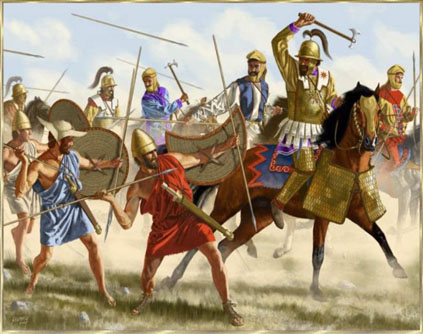
                            
Einzig Athen habe dem Besatzer genügend Widerstand entgegengesetzt, so der Priester.
 Only Athens have opposed enough resistance the occupying forces, so the priest. Only Athens have opposed enough resistance the occupying forces, so the priest.
|
                            
Wer aber waren nun die Atlanter? Platon behauptete, sie hätten einen Krieg gegen ganz Europa und Asien geführt, wobei sie schließlich von den Ländern des östlichen Mittelmeerraumes unter Anführung der Athener besiegt wurden. Tatsächlich fand um 1200 v. Chr. ein Kriegszug gegen ganz Europa und Asien statt. Die Angreifer wurden schließlich besiegt, wenn auch die Sieger die Ägypter waren. Auch Platons Angabe, dass Solon den Kriegsbericht aus Ägypten habe, sei zutreffend, da gerade die siegreichen Ägypter über diesen Krieg berichteten. Zu diesen ägyptischen Kriegsberichten zählen die große Karnak-Inschrift und die Athribis-Stele, die während der Regierungszeit des Pharao Merneptah angefertigt wurden. In aller Ausführlichkeit berichteten die Tempelinschriften von Medinet Habu, das auch als Theben und Karnak bekannt ist, über diesen Krieg. Diese Inschriften wurden während der Regierungszeit des Pharaos Ramses III angefertigt. Kurz nach dem Tod von Ramses III wurde der Papyrus Harris geschrieben. Sein Anlass war die Thronbesteigung seines Sohnes und Amtsnachfolgers Ramses IV. Dieser Papyrus fasste die Regierungszeit von Ramses III zusammen. Sein letzter Abschnitt galt dem bewussten Krieg.
|
 But who were the Atlanteans now? Plato claimed that they had fought a war against all over Europe and Asia, where they were finally defeated by the countries of the Eastern Mediterranean under leadership of Athens. Actually, a military campaign against Europe and Asia took place around 1200 BC. The attackers were eventually defeated when the Egyptians were the winners. Also Plato's claim that Solon had the war report from Egypt, is true, because just the victorious Egyptians reported about this war. These Egyptian war reports include the great Karnak inscription and the Piux - stele, which were made during the reign of the Pharaoh Merneptah. In great detail, the temple inscriptions reported from Medinet Habu, which is also known as Thebes and Karnak, about this war. These inscriptions were made during the reign of Pharaoh Ramesses III. The Papyrus Harris was written shortly after the death of Ramesses III. His reason was the throne of his son and official successor Ramesses IV. This Papyrus summed up the reign of Ramesses III. Its last section was the conscious war. But who were the Atlanteans now? Plato claimed that they had fought a war against all over Europe and Asia, where they were finally defeated by the countries of the Eastern Mediterranean under leadership of Athens. Actually, a military campaign against Europe and Asia took place around 1200 BC. The attackers were eventually defeated when the Egyptians were the winners. Also Plato's claim that Solon had the war report from Egypt, is true, because just the victorious Egyptians reported about this war. These Egyptian war reports include the great Karnak inscription and the Piux - stele, which were made during the reign of the Pharaoh Merneptah. In great detail, the temple inscriptions reported from Medinet Habu, which is also known as Thebes and Karnak, about this war. These inscriptions were made during the reign of Pharaoh Ramesses III. The Papyrus Harris was written shortly after the death of Ramesses III. His reason was the throne of his son and official successor Ramesses IV. This Papyrus summed up the reign of Ramesses III. Its last section was the conscious war.
|
                            
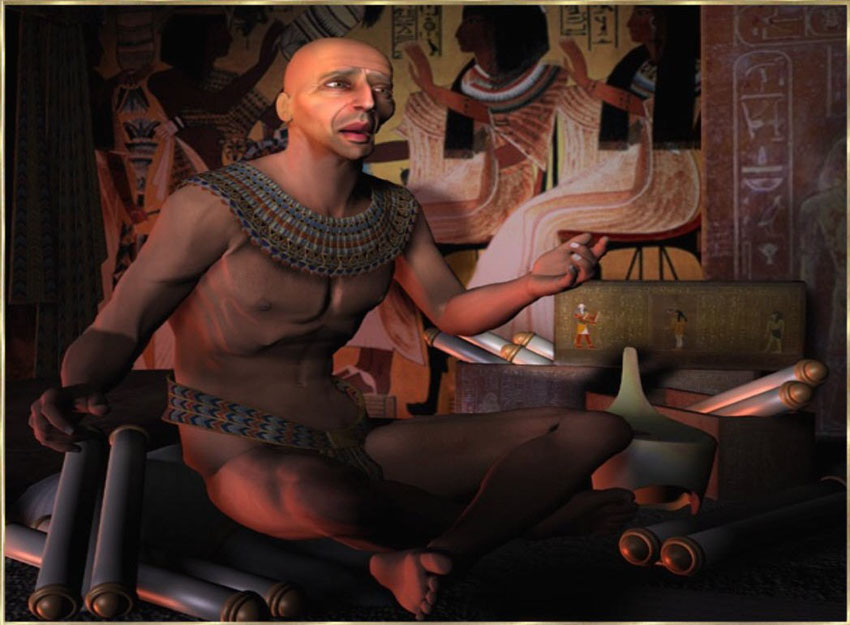
                            
Der Priester Sonchis aus der ägyptischen Pharaonenstadt Sais
 The priest of Sonchis from the Egyptian pharaohs city of Sais The priest of Sonchis from the Egyptian pharaohs city of Sais
 Taken from: Atlantis-Motherland Taken from: Atlantis-Motherland
|
                            
Die Atlantis-Theorie von Jürgen Spanuthuth
 The Atlantis theory of Jürgen Spanuth The Atlantis theory of Jürgen Spanuth
                            
Spanuth behauptet, die Atlantisgeschichte müsse wahr sein, weil Platon schrieb, Solon wäre in Ägypten gewesen und griechische Geschichtsschreiber würden diesen Ägyptenbesuch bestätigen. Mitnichten sei das ein Beweis, entgegneten Spanuths Kritiker. Plutarch, der Jahrhunderte nach Platon lebte, kannte auch die Schriften Platons und könnte gestützt auf die Aussage Platons lediglich dessen Behauptung wiederholt haben, Solon wäre in Ägypten gewesen. Proklos’ Behauptung, Krantor aus Soloi hätte in Ägypten Schriften gesehen, die Solons Atlantisbericht bestätigten, sei zweifelhaft. Weshalb denn, so Spanuths Kritiker, wusste Proklos denn nichts zusätzliches über Atlantis und seinen Krieg gegen Ägypten zu berichten – insbesondere, wo doch Platons Dialog "Kritias", der den Großteil der Atlantis-Geschichte enthielt, unvollendet blieb?! Proklos’ Angabe, der ägyptische Priester, der dem Solon über Atlantis erzähle, habe Sonchis aus Sais geheißen, könnte eine Ausschmückung sein, eine reine Erfindung von Proklos. Schlimmer noch, ein Besuch Solons in Ägypten ist aus ägyptischen Quellen nicht bekannt. Überhaupt: wie hätte der ägyptische Priester dem Griechen Solon die Geschichte erzählen sollen, die Sprachunterschiede wären nicht zu überwinden gewesen. Weitere Informationen finden Sie hier: Die Entdeckung von Atlantis
|
 Spanuth claimed the Atlantis story must be true, because Plato wrote that Solon had been in Egypt and Greek historian would confirm this visit to Egypt. By no means is proof, Spanuths critics countered. Plutarch, who lived centuries after Plato, knew also the writings of Plato's and could have reviewed having regard to the statement of Plato's only his claim, Solon would have been in Egypt. Proclus ' claim that crane from Soloi had seen writings in Egypt, who confirmed the Solon Atlantis report, was doubtful. Why, so Spanuths critics, knew proclus to report anything extra - Atlantis and its war against Egypt in particular, where, but Plato's dialogue remained unfinished 'Critias', the Atlantis story containing the bulk of that? Proclus ', the Egyptian priest who tell the Solon about Atlantis, have welcomed Sonchis of SAIS, could be a decoration, a pure invention of proclus. Worse still, a visit to Solon in Egypt is not known from Egyptian sources. At all: how should the Egyptian priest the Greeks have told Solon the story, the language differences would have been not to overcome. You will find more information here: The discovery of Atlantis Spanuth claimed the Atlantis story must be true, because Plato wrote that Solon had been in Egypt and Greek historian would confirm this visit to Egypt. By no means is proof, Spanuths critics countered. Plutarch, who lived centuries after Plato, knew also the writings of Plato's and could have reviewed having regard to the statement of Plato's only his claim, Solon would have been in Egypt. Proclus ' claim that crane from Soloi had seen writings in Egypt, who confirmed the Solon Atlantis report, was doubtful. Why, so Spanuths critics, knew proclus to report anything extra - Atlantis and its war against Egypt in particular, where, but Plato's dialogue remained unfinished 'Critias', the Atlantis story containing the bulk of that? Proclus ', the Egyptian priest who tell the Solon about Atlantis, have welcomed Sonchis of SAIS, could be a decoration, a pure invention of proclus. Worse still, a visit to Solon in Egypt is not known from Egyptian sources. At all: how should the Egyptian priest the Greeks have told Solon the story, the language differences would have been not to overcome. You will find more information here: The discovery of Atlantis
|
                            
 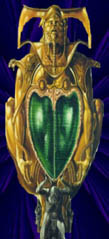 
                        
Nehmen wir die nächste Theorie: ist oder war vielleicht Troja Atlantis?
 Let's take the next theory: Perhaps is Troja Atlantis? Let's take the next theory: Perhaps is Troja Atlantis?
                        
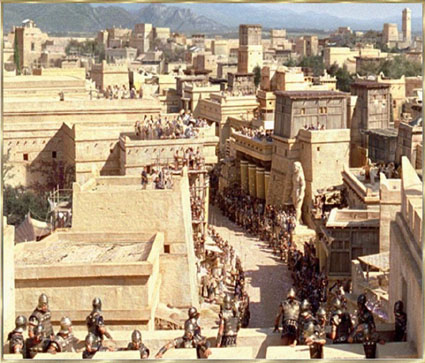 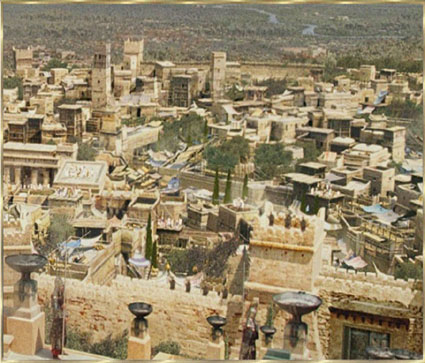
                            
Die Glorifizierung des antiken Griechenland
 The glorification of the ancient Greece The glorification of the ancient Greece
                            
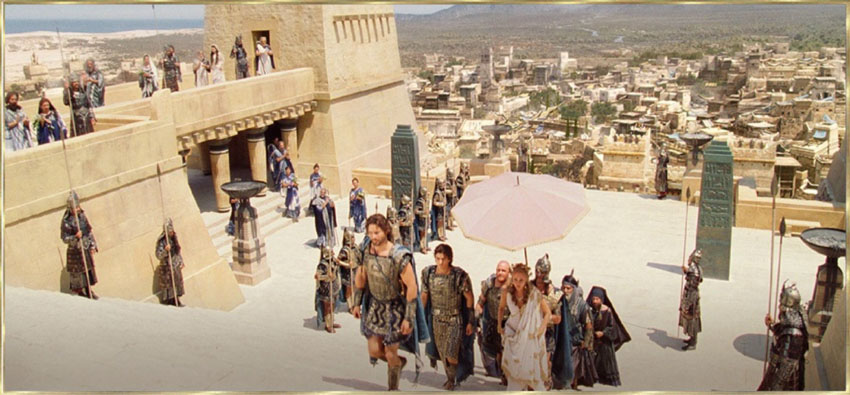
                             Laut Platon war ganz klar, dass Troja nicht Atlantis war, sondern eine nichtgriechische Macht.
Laut Platon war ganz klar, dass Troja nicht Atlantis war, sondern eine nichtgriechische Macht.
 According to Plato, it was quite clear that Troy was not Atlantis, but a non-Greek power. According to Plato, it was quite clear that Troy was not Atlantis, but a non-Greek power.
                            
So kam es zu einer Glorifizierung des antiken Griechenland, die bis heute das geistige Bild der Antike bestimmt. So galt bis vor kurzem widerspruchslos Troja als eine griechische Stadt, was durch neuere Forschungen langsam zweifelhaft wird. Für Zangger ist dieser Punkt besonders wichtig, weil Platon Atlantis ganz klar als eine nichtgriechische Macht beschreibt. Und Zangger identifiziert ausgerechnet Troja als den historischen Kern der Atlantis-Geschichte. Das Problem ist natürlich, dass Platons Schilderung der atlantischen Großmacht nicht zum griechischen Kulturkreis paßt. Wenn wir uns jedoch von der Vorstellung lösen, dass Troja eine griechische Stadt war, und wenn wir uns gleichzeitig vorstellen, dass in Kleinasien nicht irgendwelche Barbaren, sondern womöglich kulturell hochstehende und mächtige Königreiche existierten, deren wichtigstes möglicherweise Troja war, dann ergibt eine Gleichsetzung Trojas mit Atlantis möglicherweise doch einen Sinn. Zangger hat sich daher die Landschaft rund um Troja noch einmal angeschaut und einige Merkwürdigkeiten festgestellt. So hält er es durchaus für möglich, dass der Hafen des nichtgriechischen Troja Parallelen zu der von Platon beschriebenen Hafenanlage aufweist. Vielleicht ist das alles nur eine Frage der geoarchäologischen Interpretation, vielleicht tut sich aber hier eine Möglichkeit auf, Atlantis sinnvoll zu lokalisieren. Sie möchten mehr dazu lesen? Dann klicken Sie bitte hier: Waltpolitik.Powerbone
|
 So there was a glorification of the ancient Greece, which determined the mental image of the ancient times until today. So was until recently without Troy as a Greek city, which is slowly doubtful by recent research. For Zangger, this point is especially important, because Plato clearly describes Atlantis as a non-Greek power. And Zangger precisely identifies Troy as the historic core of the Atlantis story. The problem is of course, that Plato's description fits the Atlantic great power not to the Greek culture. If we us however solve the idea, that Troy was a Greek city, and if we also imagine, that existed in Asia minor, not any barbarians, but perhaps culturally sophisticated and powerful kingdoms whose most important may have been Troy, then an equation of Troy with Atlantis may be yet a sense. Zangger has once again looked at so the landscape around Troy and noted some oddities. So he thinks it quite possible that of port of non Greek Troy has parallels with the port facility, described by Plato. Maybe that's all just a matter of geo-archaeological interpretation, maybe a possibility opens up but here, useful to locate Atlantis. To read more about this? Then please click here: So there was a glorification of the ancient Greece, which determined the mental image of the ancient times until today. So was until recently without Troy as a Greek city, which is slowly doubtful by recent research. For Zangger, this point is especially important, because Plato clearly describes Atlantis as a non-Greek power. And Zangger precisely identifies Troy as the historic core of the Atlantis story. The problem is of course, that Plato's description fits the Atlantic great power not to the Greek culture. If we us however solve the idea, that Troy was a Greek city, and if we also imagine, that existed in Asia minor, not any barbarians, but perhaps culturally sophisticated and powerful kingdoms whose most important may have been Troy, then an equation of Troy with Atlantis may be yet a sense. Zangger has once again looked at so the landscape around Troy and noted some oddities. So he thinks it quite possible that of port of non Greek Troy has parallels with the port facility, described by Plato. Maybe that's all just a matter of geo-archaeological interpretation, maybe a possibility opens up but here, useful to locate Atlantis. To read more about this? Then please click here:
 Waltpolitik.Powerbone Waltpolitik.Powerbone
|
                            
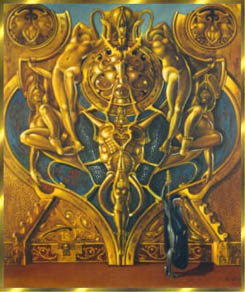  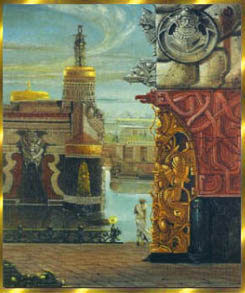
                            
Der Mythos um Atlantis wird immer bunter. Ignatius Donelly behauptete, Atlantis sei auch das biblische Paradies gewesen? Also könnte Atlantis und der Garten Eden identisch gewesen sein?  The myth of Atlantis is always colourful. Ignatius Donelly claimed that Atlantis was the biblical paradise. So Atlantis and the garden of Eden could be identical? The myth of Atlantis is always colourful. Ignatius Donelly claimed that Atlantis was the biblical paradise. So Atlantis and the garden of Eden could be identical?
|
                            

                            
Das Paradies scheint also schon bewohnt gewesen zu sein? Wahnsinn: Adam und Eva waren also nicht alleine, wenn man sich das Bild anschaut. Da wimmelt es geradezu von Menschen. Und sogar Häuser und die Arche Noah sind schon vorhanden. Was erzählt uns die Bibel denn da, vielmehr Ignatius Donelly und Erich von Däniken?
 The Paradise seems to have been already inhabited? Madness: Adam and Eve so not alone were, if you look at the image. It's downright swarming people. And even houses, and Noah's Ark exist already. What tells us the Bible there, rather Ignatius Donelly and Erich von Däniken? The Paradise seems to have been already inhabited? Madness: Adam and Eve so not alone were, if you look at the image. It's downright swarming people. And even houses, and Noah's Ark exist already. What tells us the Bible there, rather Ignatius Donelly and Erich von Däniken?
|
                            
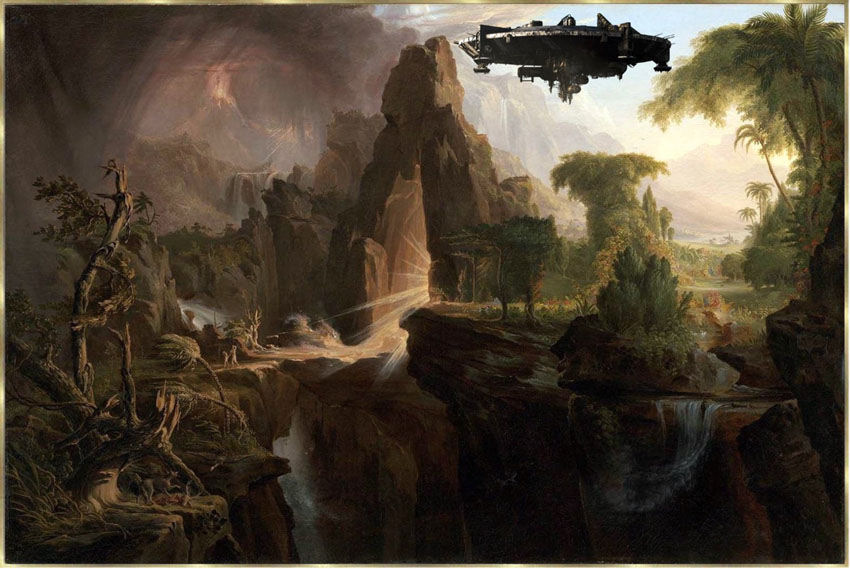
                             Ausserirdische Intelligenz schon im Paradies?
Ausserirdische Intelligenz schon im Paradies?
 Extraterrestrial intelligence already in paradise? Extraterrestrial intelligence already in paradise?
                            
Erich von Däniken behauptete ebenfalls, dass vor Jahrtausenden außerirdische Intelligenzen die Erde besucht hätten und seien von unseren Urahnen als Götter verehrt worden und hätten den Menschen die Kultur gebracht. Auch Berlitz schrieb, Atlantis sei am Ende der letzten Eiszeit vor etwa 10000 Jahren versunken. Es sei eine Hochkultur gewesen, die aus einem Inselreich bestand und im Atlantik lag. Außerdem habe es in Afrika bis an die Grenze von Ägypten und in Europa bis nach Tyrrhenien in Norditalien geherrscht. Auf Atlantis habe es eine Pyramide, einen goldenen und einen silbernen Tempel gegeben. Der Boden von Atlantis sei sehr fruchtbar gewesen, so dass man zweimal im Jahr ernten konnte. Atlantis habe einen Krieg gegen die Länder des östlichen Mittelmeerraumes geführt und sei anschließend innerhalb eines Tages und einer Nacht durch ein Erdbeben im Meer versunken. Der Hellseher Edgar Cayce habe in seinen Visionen das Wiederauftauchen von Atlantis vorhergesagt. Mehr noch: er habe vorhergesagt, es solle nahe der Karibikinsel Bimini auftauchen. All dies solle entweder 1968 oder 1969 geschehen. Cayce machte diese Vorhersage in den zwanziger Jahren. Und tatsächlich: 1968 entdeckte der Pilot Manson Valentine eine mehrere hundert Meter lange Mauer aus Steinquadern im flachen Wasser nahe der Insel Bimini. Atlantis war offenbar wieder aufgetaucht wie es der Hellseher Cayce vorhergesagt hat. Eine Sensation!
|
 Erich von Däniken also claimed that extraterrestrial intelligences visited the Earth millennia ago and had been worshipped as gods by our ancestors, and had brought the culture of the people. Berlitz also wrote that Atlantis was sunk at the end of the last ice age about 10000 years ago. It had been a high culture, which consisted of an island Kingdom and was in the Atlantic Ocean. Also it have ruled in Africa up to the border of Egypt and Europe until after Tyrrhenien in Northern Italy. On Atlantis, there had been a pyramid, a gold and a silver Temple. The land of Atlantis had been very fruitful, so that you could harvest twice a year. Atlantis has led a war against the countries of the Eastern Mediterranean and was then sunk within one day and one night by an earthquake in the sea. The psychic Edgar Cayce predicted the reemergence of Atlantis in his visions. Moreover, he predicted that it should appear near the Caribbean island of Bimini. All of this should happen either 1968 or 1969. Cayce made this prediction in the 1920s. And indeed: in 1968 the pilot Manson Valentine discovered a several hundred meter long wall of stone blocks in shallow water near the island of Bimini. Atlantis was apparently again surfaced as the Prophet of Cayce has predicted. A sensation! Erich von Däniken also claimed that extraterrestrial intelligences visited the Earth millennia ago and had been worshipped as gods by our ancestors, and had brought the culture of the people. Berlitz also wrote that Atlantis was sunk at the end of the last ice age about 10000 years ago. It had been a high culture, which consisted of an island Kingdom and was in the Atlantic Ocean. Also it have ruled in Africa up to the border of Egypt and Europe until after Tyrrhenien in Northern Italy. On Atlantis, there had been a pyramid, a gold and a silver Temple. The land of Atlantis had been very fruitful, so that you could harvest twice a year. Atlantis has led a war against the countries of the Eastern Mediterranean and was then sunk within one day and one night by an earthquake in the sea. The psychic Edgar Cayce predicted the reemergence of Atlantis in his visions. Moreover, he predicted that it should appear near the Caribbean island of Bimini. All of this should happen either 1968 or 1969. Cayce made this prediction in the 1920s. And indeed: in 1968 the pilot Manson Valentine discovered a several hundred meter long wall of stone blocks in shallow water near the island of Bimini. Atlantis was apparently again surfaced as the Prophet of Cayce has predicted. A sensation!
|
                            
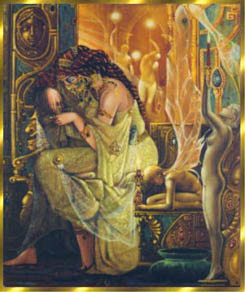  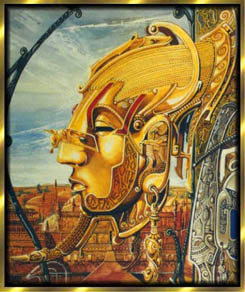
                            
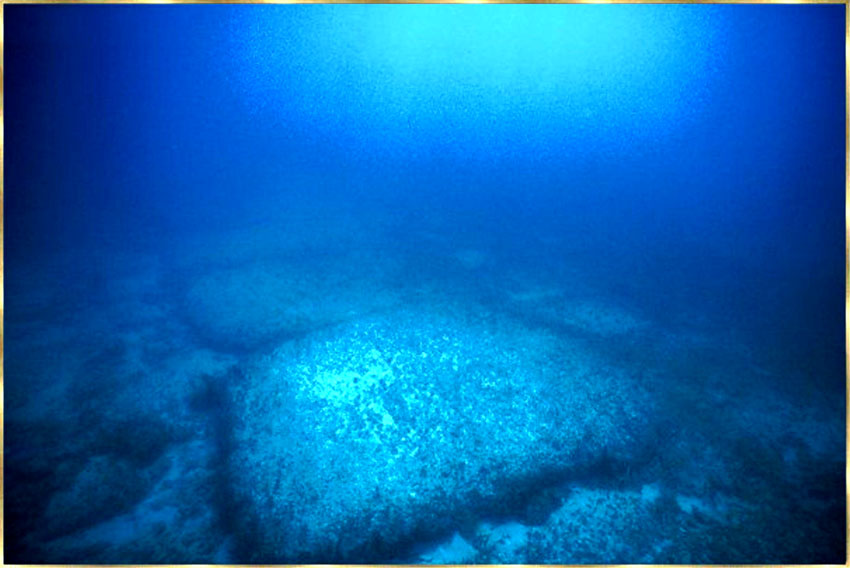
                            
Bimini liegt rund 80 km östlich von Miami Beach. Die Inseln sind vor allem als Anglerparadies bekannt. Da sie nicht weit von Miami entfernt sind, werden die Inseln von vielen US-amerikanischen Anglern mit dem Boot besucht. Tauchen und Schnorcheln sind ebenfalls populäre Aktivitäten, da es in der Gegend zahlreiche Schiffswracks gibt. Auf Bimini gibt es zahlreiche Orte, denen mystische Eigenschaften oder mythisch-legendäre Ursprünge nachgesagt werden. Der bekannteste dieser Orte ist die sogenannte Bimini Road, die auch mit Platons Atlantis in Verbindung gebracht wurde.
Die Liste dieser Entdeckungen ist sehr lang. Einige Beispiele sollen genügen: Vor der Küste Indiens wurden in jüngster Zeit gewaltige Städte gefunden, die um 9.000 Jahre alt sind. In den südlichen Gewässern vor Japan liegen angeblich künstliche Strukturen mit einem Alter von unglaublichen 12.000 Jahren. Vor der Küste der Insel Malta, aber auch in der Bretagne liegen menschliche Spuren, die mindestens 8.000 Jahre alt sind. Ein Ort der Erde mit möglichen Spuren einer versunkenen Kultur ist bei all den interessanten Beispielen fast schon in Vergessenheit geraten: die heutigen Bahamas (Bimini). In parawissentschaftlich interessierten Kreisen ist die Meerregion um Bimini ein fester, bekannter Begriff. Vor allem Autoren, die sich des Themas Atlantis angenommen haben, kennen die Entdeckungen von Bimini auswendig.
Aber auch jene Menschen, die vom so genannten Bermuda-Dreieck fasziniert sind, ist Bimini ein Begriff. Charles Berlitz, Autor der Bestseller “Das Bermuda Dreieck” und "Spurlos", machte in seinen Büchern die Rätsel um die Bahamas weltweit bekannt. Das war vor 30 Jahren. Diese Entdeckung sorgte für Furore, denn sie wurde angeblich vorhergesagt. In den USA lebte der Seher Edgar Cayce, der im Laufe seines Lebens eine Vielzahl von "Prophezeiungen" in einer Art Trance diktierte. Inhaltlich beziehen sich seine Vielzahl von Informationen vor allem auf Atlantis. In einem seiner so genannten Readings am 2. Dezember 1933 sprach er davon, dass man Teile des sagenhaften Inselreiches nahe Bimini im Meer finden wird. Sieben Jahre später wurde er konkreter, und gab an, dass 1968 oder 1969 die ersten Teile von Atlantis wieder entdeckt werden. Und Cayce lag richtig: 1968 tauchte der mutmaßliche Tempel von Andros auf. Wie der Tempel einmal ausgesehen haben soll, darüber kann nur spekuliert werden.
|
 Bimini is about 80 km east of Miami Beach. The Islands are known as the angler's paradise. Because they are not far from Miami, the Islands are visited by many American anglers with the boat. Scuba diving and snorkeling are also popular activities, as there are many shipwrecks in the area. There are many places which are said to have mystical properties or mytho legendary origins on Bimini. The most famous of these places is the so-called Bimini road, which was also associated with Plato's Atlantis in conjunction. Bimini is about 80 km east of Miami Beach. The Islands are known as the angler's paradise. Because they are not far from Miami, the Islands are visited by many American anglers with the boat. Scuba diving and snorkeling are also popular activities, as there are many shipwrecks in the area. There are many places which are said to have mystical properties or mytho legendary origins on Bimini. The most famous of these places is the so-called Bimini road, which was also associated with Plato's Atlantis in conjunction.
The list of these discoveries is very long. A few examples will suffice: off the coast of India, huge cities have been found in recent times are around 9,000 years old. In the southern waters off Japan, allegedly artificial structures are incredible 12,000 years old. Off the coast of the island of Malta, but also in Brittany are human tracks that are at least 8,000 years old. A place on Earth with possible traces of a submerged culture has got all the interesting examples almost into oblivion: the present-day Bahamas (Bimini). The Sea region around Bimini is a solid, well known term in parawissentschaftlich interested parties. Especially writers who have addressed the theme of Atlantis, know by heart the discoveries of Bimini.
But even those people who are fascinated by the so-called Bermuda triangle, Bimini is a term. Charles Berlitz, author of the bestselling ' the Bermuda triangle ' and 'Without a trace', the mystery of the Bahamas made famous in his books all over the world. That was 30 years ago. This discovery caused a furore, because she was supposedly predicted. The Mystic Edgar Cayce, who dictated a Vielzahlvon 'Prophecies' in a kind of trance in the course of his life, lived in the United States. Content, its wide range of information refer especially to Atlantis. In one of his so-called readings on December 2, 1933, he talked that one will find parts of the mythical Island Empire near Bimini in the sea. Seven years later he was concrete, and stated that in 1968 or 1969 the first parts will be rediscovered by Atlantis. And Cayce was right: 1968 emerged the alleged Temple of Andros. As the temple should have looked once, it can be speculated only.
|
                             Cayce lag richtig: 1968 tauchte der mutmaßliche Tempel von Andros auf.
Cayce lag richtig: 1968 tauchte der mutmaßliche Tempel von Andros auf.
 Cayce was right: 1968 emerged the alleged Temple of Andros. Cayce was right: 1968 emerged the alleged Temple of Andros.
                            
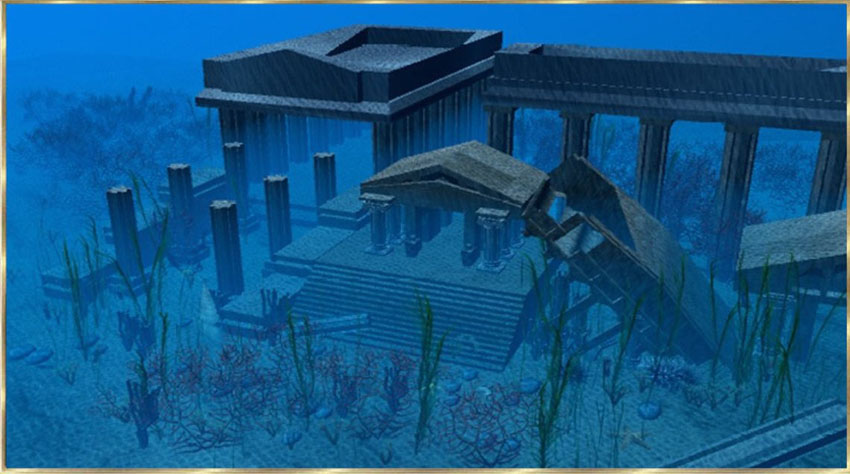
                             Vielleicht sah der Tempel einstmals so aus?
Vielleicht sah der Tempel einstmals so aus?
 Perhaps saw the temple once so? Perhaps saw the temple once so?
                            
Atlantis sei aber nicht die einzige alte Hochkultur gewesen. Atlantis lag im Atlantik. Aber auch in den anderen beiden Ozeanen seien Hochkulturen versunken. Im Indischen Ozean sei der Kontinent Lemuria versunken und im Pazifischen Ozean sei der Kontinent Mu versunken. Beide Kontinente seien noch älter als Atlantis. Über Mu berichteten alte Schriften, die in verborgenen Klöstern in Tibet lagerten. Sie seien von einem Oberst Churchward wieder entdeckt worden. (Sie interessieren sich für mehr? Dann können Sie auf der nächsten Seite weiterlesen.)
|
 Atlantis was but not the only ancient civilization. Atlantis was in the Atlantic Ocean. But also in the other two oceans civilizations were sunk. The continent of Lemuria was sunk in the Indian Ocean and the continent of Mu was sunk in the Pacific Ocean. Both continents were even older than Atlantis. Old writings, which were stored in hidden monasteries in Tibet reported on MU. You had been rediscovered by a Colonel Churchward. (You are looking for more? Then you can read on the next page.) Atlantis was but not the only ancient civilization. Atlantis was in the Atlantic Ocean. But also in the other two oceans civilizations were sunk. The continent of Lemuria was sunk in the Indian Ocean and the continent of Mu was sunk in the Pacific Ocean. Both continents were even older than Atlantis. Old writings, which were stored in hidden monasteries in Tibet reported on MU. You had been rediscovered by a Colonel Churchward. (You are looking for more? Then you can read on the next page.)
|
                            
  
                            
|
| |
| | | | | | |